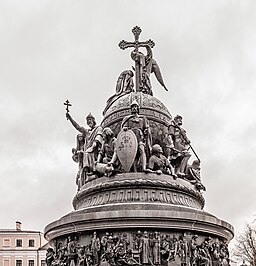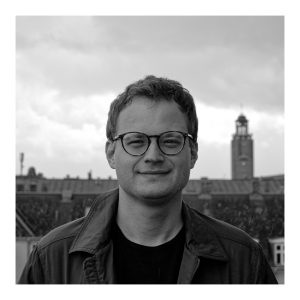
Nätmagasinet Mänsklig säkerhet (MS) kan här publicera en artikel om hur Ryssland inte kan demokratiseras innan landet upphör att kolonisera och tvångsförryska människor av olika etniciteter både öster och väster om Uralbergen.
Texten är ursprungligen tryckt i tidskriften ”New Eastern Europe”, nr 6 2022 och författad av Milosz J. Cordes, tidigare polsk diplomat med posteringar i bl a Bryssel (EU) och Moskva.
Med denna text inleder MS nu ett samarbete ”New Eastern Europe” där vi planerar att utbyta texter så att det vi publicerar kan publiceras av NEE och vi kan ge utrymme åt deras texter. Vi ser mycket fram emot detta som infriar en ambition vi haft att utverka samarbete med länder i östra Europa som gränsar till Ukraina.
För er som vill läsa mer om Ryssland som kolonialmakt rekommenderas också Lena Jonsons ”Volga och inre Ryssland: en resa i tid och rum (Dialogos, 2023). Jonson fokuserar på de områden Ryssland koloniserat väster om Ural medan Cordes lägger tonvikten på koloniseringen österut. Men samma förryskningspolitik beskrivs, och hur den hårdnat under Putin, särskilt sedan 2012. Den nya konstitution Putin drev igenom som gav honom möjlighet att inneha presidentämbetet till 2034 inleds nu med ”Vi ryssar, i förbund med andra mångnationella folk” vilket ersatte ”Vi, Ryska Federationens mångnationella folk”. Detta sätt att slå fast ryskt primat väckte starka protester i bl a Tatarstan men förslaget drevs hårdfört igenom. Jonson skriver också om hur alla försök att skydda regionernas egna språk och kultur brutalt slås ner och definieras som separatism.
Att Ryssland som kolonialmakt kunnat gå under radarn så länge är ett mysterium! Särskilt nu när Ryssland försöker sälja in sig globalt som de afrikanska och andra koloniserade folkens bästa vänner.
Vi vill gärna återkomma till detta ämne och välkomnar texter och tankar i frågan.
Gerd Johnsson-Latham, Chefredaktör.
Why Russia needs decolonisation for its future democratization (part I of II)
A: Miłosz J. Cordes
Intro: The war in Ukraine has been possible because for centuries Russian and Soviet authorities have focused their ideological and political attention on the European part of Russia. In doing so, they have been ignoring the interests of other regions of the country, as well as its non-Slavic population. In this sense, 75 percent of Russia’s territory acts as Moscow’s internal colonial empire. Not only is it financing the war with its oil and gas, but also providing cannon fodder for Russian military commanders who do not value the lives of Buryats, Tatars of Chechens as much as those of Slavic citizens. Decolonization is thus essential to ensure democratization of Russia.
Russia has for centuries colonised the East
The year 1582 the Cossack ataman Yermak embarked on what was a private enterprise of a merchant family. The Stroganov family was looking for ways to secure their trade routes in the East, repeatedly plundered by Siberian warlords. Although Yermak died in an ambush shortly thereafter, he paved the road to another expedition, this time commissioned by the tsar.
Moscow rulers expanded rapidly to the east. Their reign reached north-western shores of Pacific Ocean in less than 200 years. From a small duchy on the outskirts of Rus, Moscow transformed into the Russian Empire, stretching from the Baltic Sea all the way to Korea and the Japanese Islands. Yermak could not know that his expedition would lead to the birth of a new colonial power. Unlike its Western European counterparts, however, its colonies were officially part of the metropolis.
Because of that Russia has only been subject to partial decolonisation. It lost its external territories, but it has kept its internal colonies. This phenomenon is blatantly visible in Putin’s actions in Ukraine where he is trying to regain what he considers essential for the wellbeing of the metropolis with the use of material and human resources provided by peripheral territories.
In so doing, Putin acts on behalf of merely 25 percent of the country’s total area at the expense of the remaining 75 percent lying east of the Urals, similar to how many European powers in the 19th and 20th centuries treated their dependencies in Africa, America or Asia. It means that an area 30 percent larger than the United States or 65 times than the United Kingdom has been exploited in an almost openly colonial way 60 years after the peak of decolonisation.
There are two reasons explaining this phenomenon. The first one relates to narratives on history and politics of memory pursued by the Kremlin at least since 2012, but is in fact deeply rooted in the Russian imperial rhetoric. The second is the ethnic composition of Russian armed forces in Ukraine, especially in the face of the “partial” mobilisation, and the losses non-ethnic Russian soldiers have been suffering.
Slavic Pan-Russianness
When Vladimir Putin announced his come-back as president he published a series of programme articles, setting the stage for his new-old role. More specifically, he described Russia (just like former Tsars) as a distinct civilisational entity based on the legacy of medieval Rus, the Orthodoxy and traditional values that Russians have supposedly kept over centuries.
Putin’s articles partly explain the way the Russian president perceives the spatial dimension of fundaments of Russia. Her roots are limited to Eastern Europe and to the three Eastern European entities Putin sees as three branches of one Russian nation (triyediniy russkiy narod): Russians, Belarusians and Ukrainians. They are the backbone of today’s Russia, Putin argues, stemming from the alleged unity of medieval Rus with the dominating role of Moscow.
It partly explains Putin’s fixation on Ukraine, as Kyiv was the place where the first Ruthenian Orthodox metropolis was erected. To him, controlling Ukraine is essential to secure the core of the Russian civilisation. He confirmed and refined this point of view in July 2021 when he in another article tried to convince the readers that Ukraine is part of Russia.
By pursuing such narrative, Putin seeks to downplay the role of other political entities on this vast area, such as the proto-democratic merchant Novgorod Republic or the nobleman Polish-Lithuanian Commonwealth. The Russian president completely ignores the role of other Slavic nations in the development of Russia’s power. Although they populated the majority of Russia-controlled territories ever since its rapid expansion eastwards in late 16th century, they have never become an equal part of the official Russian narrative of history. Children in Khabarovsk and Vladivostok are taught about developments in culture and politics that took place several thousand kilometres away, obliged to treat them as their own story.
As a result, today’s Russia remains the world’s only colonial empire that exploits its own citizens. It has never been decolonised which also partly answer the question we have been asking ourselves since 1991: how can Russia ever become a full-fledged democracy?
Internal colonies
Russia’s colonies constitute an integral part of the country’s territory, much like Algeria was part of France. The difference is, however, that large parts of northern Eurasia east of the Urals that Russia took control of have always been scarcely inhabited and deprived of strong political entities. It was relatively easy for Moscow and St. Petersburg to exert control over lands lacking highly organised power-structures in spite of their distinctive, objectivised culture and awareness of non-Russian past.
Russia created the bulk of its colonial dominium within its own territory by direct incorporation and over the centuries applied different methods of economic exploitation, as well as political and cultural violence. It is important to mention that I am not talking about the peoples living on the southern borders of Russia in the Caucasus and Central Asia. Their political traditions and established cultural heritage have frequently made them struggle against Russian domination.
The different possibilities to break free from Russia is also visible by looking at what was going on in the western part of the empire after the First and Second World War. Russia and the Soviet Union first gained and then lost control of areas populated by people sharing a strong sense of national identity, often backed by tradition of statehood, protection of their own languages; Poles, Lithuanians, Latvians, Estonians or Ukrainians. Thus, with their language, culture and elites they managed to survive Russian domination and regain political sovereignty when the moment was right – in 1917/1918 and in 1989/1991.
They were not Russia’s dominions, but rather provinces in the ancient Roman sense of the word.
Miłosz J. Cordes
 PhD in Cultural Studies, MA in East-European Cultural Studies & International Relations, BA in History & International Relations. Post-Doc Researcher at Lund University (2021), Consultant at the Danish Institute of International Studies (2023), Lead Analyst of the 2023 Warsaw Security Forum. Benjamin Franklin Transatlantic Fellow (2006).
PhD in Cultural Studies, MA in East-European Cultural Studies & International Relations, BA in History & International Relations. Post-Doc Researcher at Lund University (2021), Consultant at the Danish Institute of International Studies (2023), Lead Analyst of the 2023 Warsaw Security Forum. Benjamin Franklin Transatlantic Fellow (2006).
Miłosz spent 10 years at Polish diplomatic service. He was Vice-Consul at Poland’s Consulate General in Kaliningrad (2018-2021), Second Secretary at Poland’s Permanent Representation to the European Union (2016-2018), Second Secretary & Specialist at Poland’s Ministry of Foreign Affairs’ (2012-2016).
Miłosz’s research interests cover identity, politics of memory, nationalism & populism in Central and Eastern Europe, the Baltic Sea Region integration, as well as the West-Russia relations. He has published numerous academic and public intellectual articles in international journals and is now working on his book about identity politics in Kaliningrad Oblast.
Editor: Gerd Johnsson-Latham

Lämna ett svar